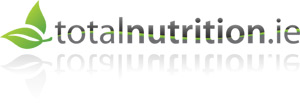Doing the best by your skin is not all about the lotions and potions you put on it. We all need to ensure we feed it nutritionally with the best foods so we look as good as it gets.
We create a whole new layer of skin every 17-42 days according to our age, so with that in mind it is never too late to start ‘feeding’ it from the inside out! We can’t forget one of the skins key roles is that it is our second largest detoxification organ and as such often what is showing up on the skin is a key tell tale sign to what is going on within! With this in mind poor liver detoxification can often show up on the skin through spots, bumps, redness and eczema: so supporting this vital organ is a great way to support the skin.
The liver is a highly complex organ and as such requires numerous essential nutrients to work effectively – key one on the list is water. We should be drinking 1.5 – 2 litres of water a day and our urine should always be colourless and odourless. Sluggish bowels definitely impacts on this area and ideally we should be emptying them at least once a day and ideally twice– foods which support our bowels are fruits and vegetables, wholegrains, fish (providing essential oils) and a diet which has a better balance of vegetarian and animal proteins. This diet will also support the liver as well as sulphur based foods like onions, garlic and green leafy vegetables.
Nutritionally the skin itself requires some key nutrients:-
Vitamin A which supports the two main layers of skin and deficiency can lead to dry and scaly skin. This vitamin is found in dark green/yellow vegetables and yellow fruits, such as broccoli, spinach, carrots, sweet potatoes, pumpkin and apricots and in animal sources such as liver, milk, butter, cheese, and whole eggs.
Vitamin C which is an important antioxidant and has antibacterial values, this vitamin is found in citrus fruits, berries and green leafy vegetables.
Vitamin E prevents scaring and most importantly impacts on WRINKLES. Don’t forget from a previous article this delicate nutrient can be damaged easily and should therefore be taken alongside vitamin C which can regenerate vitamin E if required. Good sources of vitamin E are nuts and seeds, in particular almonds, sunflower seeds, hazelnuts as well as broccoli, kiwi and mango.
Vitamin D which is generated by the body through the skin, there are very few foods in nature that contain vitamin D: the flesh of fatty fish (such as salmon, tuna, and mackerel) and fish liver oils are among the best sources, after that it is natural sunlight.
To round off these nutrients, zinc, copper, B6, glucosamine and manganese are also great skin supporters and a diet rich in whole grains, nuts, seeds, eggs, fish, pulses, fruits and vegetables will ensure your sizzle for summer!
PS: Don’t forget a good suncream!


